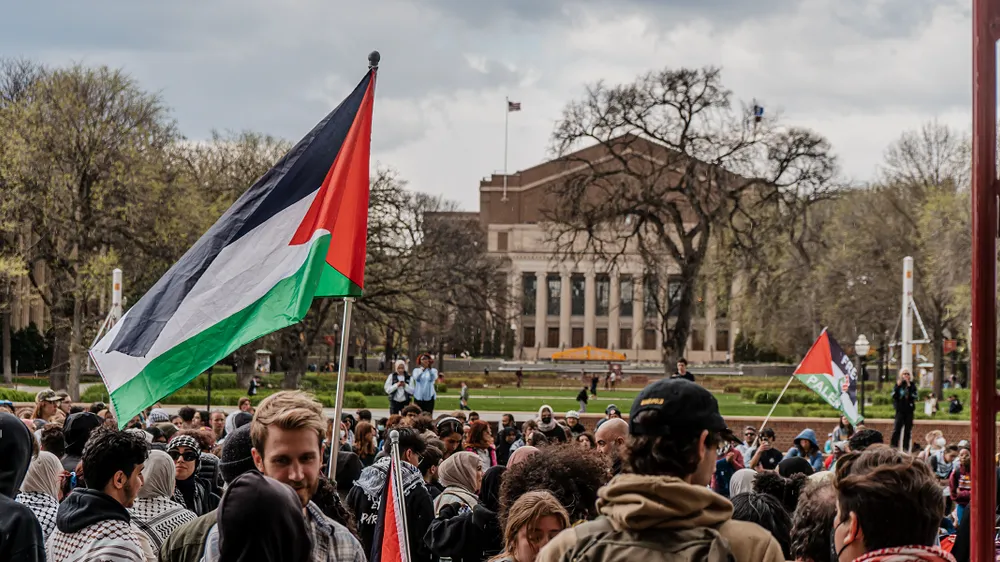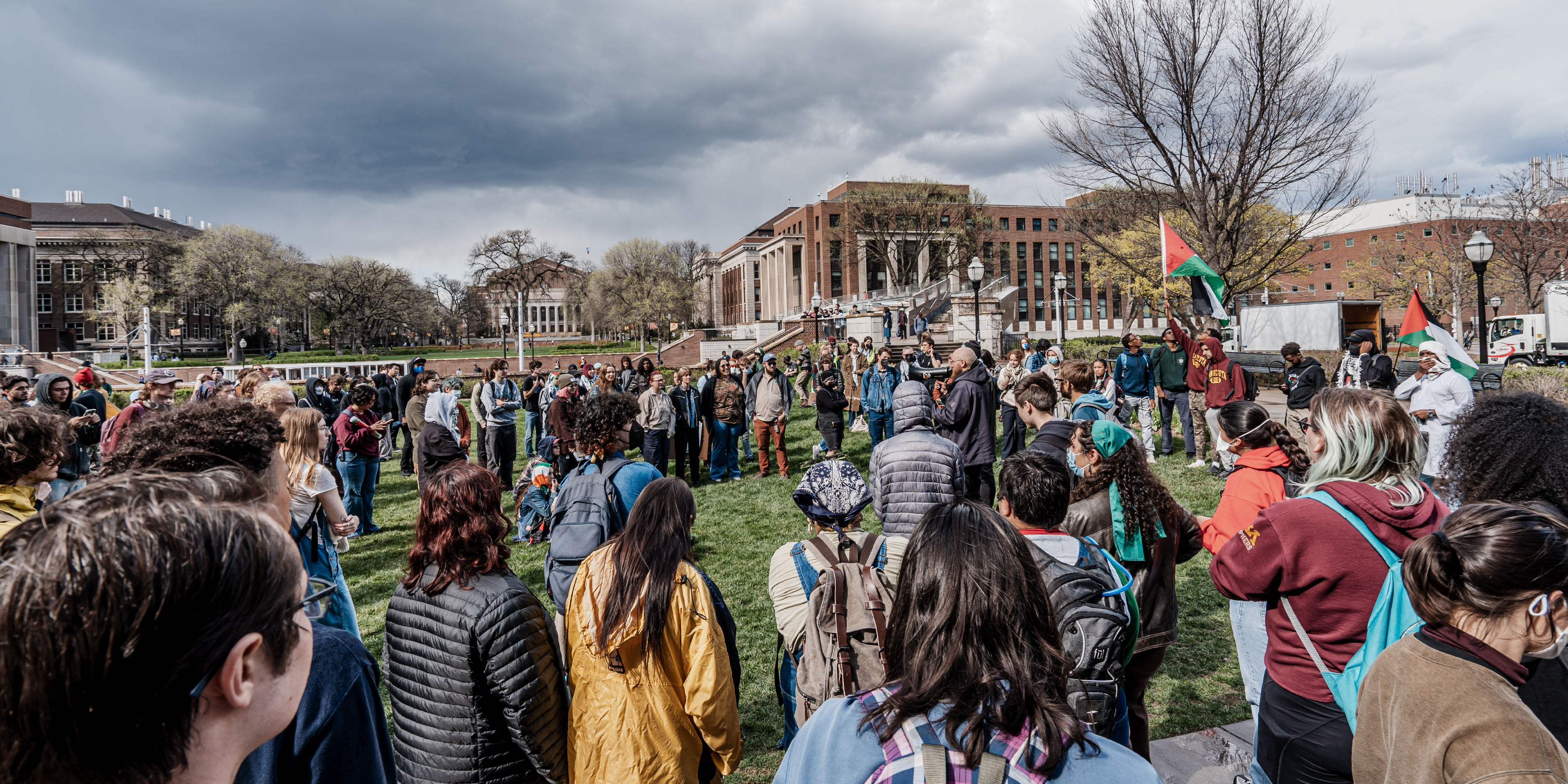
Protesting for Justice: How Students are Redefining Their Role in Higher Education
In recent years, higher education's marketisation has turned students into passive consumers. Amidst the Gaza genocide, students in the US and Europe are demanding their universities take a stand against injustice, reclaiming their roles as active political agents. Will this resurgence of activism redefine the future of higher education?

In the last couple of decades, mostly due to the process of marketisation of higher education (HE) in Western societies, university students have been constructed mainly as consumers. Although each higher education system has its specificities, which are largely the result of each state's political decisions regarding higher education, this is certainly the case in the United States (US), the United Kingdom (UK), Australia, and most states in Western Europe. This construction of students, emphasizing consumerist behaviours, reduces the relationship of students with their university to a transaction, positioning them as passive subjects not politically active and engaged.
The Shift in Student Identity Amidst the Gaza Genocide
During the ongoing genocide in Gaza by Israel, in which Israel destroyed all universities in Gaza and killed hundreds of academics and students, university students have challenged their positioning as consumers by demanding their institutions take a public stance against genocide and divest from Israel. For instance, over 1,100 employees, students and former students demanded that the University of Amsterdam condemn Israeli violence against Palestinians as soon as October 20, 2023, which the University of Amsterdam Executive Board refused to do. In the UK in February and March, Goldsmiths London, University of Leeds, and University of Bristol students occupied buildings for weeks to protest the ongoing genocide in Gaza.
The Rise of Student Encampments and Protests
In recent months, students started encampments on university campuses as a form of protest, first in the US, and later in Europe (including the UK). One of the most high-profile cases happened at Columbia University in the US. The encampment lasted for days, with students demanding their institution withdraw investment funds from companies profiting from Israel’s military action in Gaza. As Samer Abdelnour noted in an article published in 2023, there is a military-innovation ecosystem in Israel that is “deeply tied to violence it enacts upon the Palestinians.” By ‘military-innovation ecosystem’ Dr Abdelnour refers to a “constellation of industries, infrastructures and organizations involved in weapons development, testing and sales [that] include military and state agencies, tech start-ups and private companies, universities and research institutes, as well as banks and venture financing”. Eventually, the President of Columbia University called the police on students, who were then violently assaulted and detained by them. Similar events happened on several other US university campuses, and in many cases, professors who tried to protect their students were also subjected to police violence and detained.
Questions of Free Speech and Western Democracy
Some of the questions that these events raise is: Where lies the free speech and freedom to protest that Western politicians and diplomats often argue to be one of the main factors that separates and distinguishes the West from non-democratic states, notably in the Middle East? How can the West pretend to give lessons of democracy to the rest of the world when it does not tolerate and violently quashes dissent within its societies? And perhaps most importantly, what are the real reasons that led the West to support protests for freedom in other geographies while it crushes protests from its youth, its students?
The Hope for Future Student Activism
As I write this article, I watch horrifying images of Dutch police beating, for the third time this week, University of Amsterdam students who refuse to stop protesting, of a new student encampment starting at King’s College London, and of students occupying a building at Columbia University. These lead me to believe that although we cannot predict what the result of the student encampments and other forms of protest will be, it is possible to say with a certain absolute degree of certainty that many students actively reject being passive actors and increasingly demand to be seen and treated as political actors. This will not occur without tensions and violence (with students largely the receiving end of such violence), but it is their current insistence on being listened to as more relevant than mere consumers that keeps me hopeful for the future.
Dr Carlos Azevedo is a postdoctoral fellow at the Centre for Research in Higher Education Policies (CIPES) in Portugal. Previously, Dr Azevedo was a visiting fellow at the Open University Business School in the United Kingdom, where he completed his PhD. His research focuses on marketised higher education systems and their impact on students’ discourses and practices, student activism, and academic freedom.

